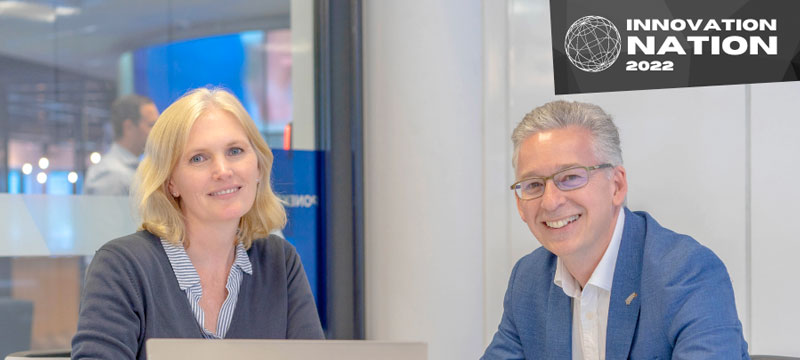New Clinical Research Organisation BioValeo has been founded to support the NZ biotech industry

(November 17, 2022) Clinical trials are an essential part of developing new treatments and medicines, but without the right expertise and knowledge to support the trial process, it is almost impossible to get a product to market. This is why BioValeo, a new clinical research organisation and consultancy, has been founded – to ensure the New Zealand Biotech industry is well supported to engage in more successful clinical trials, particularly in the area of personalised medicines. “Many people don’t understand what is required to make it through a clinical trial,” says Julie Jones, CEO and Founder of BioValeo.
“It’s a bit like an iceberg, where you see the tip of it and think that it is not that difficult. But underneath there is a tremendous amount of complexity and compliance. If you get it wrong, the cost could be significant enough that there isn’t an opportunity to rerun it. And of course, any delays mean patients miss out too,” added Jones.
New Zealand has a growing biotech industry, but many of these groups are small and don’t have the inhouse capabilities to take research to the clinical trial stage. This is where BioValeo comes in, providing the facilities and knowledge base to be efficient, adaptive and to ensure all phases of the trials are completed to the required standard.
“A lot of people who get to the preclinical stage with a potentially new medical product aren’t sure what to do next. We can provide first-class, personalised, Contract Research Organisation (CRO) and consultation services for clinical trials. We are focused on personalised medicines, particularly CAR-T cell therapies, and immunology treatments,” explains Jones.
CAR-T cell is a revolutionary approach to fighting cancer, and it stands for Chimeric Antigen Receptor T-cell therapy. A one-off treatment, it reprograms a patient’s immune cells (T-cells) in the lab to identify and attack cancer cells. Those modified T-cells are then put back into the patient, where they can attack and destroy cancer cells in the body.
It’s not just our local scientists who win, but it also opens-up an opportunity for more New Zealand patients to be involved in clinical trials – which could potentially offer life-changing treatment that they would otherwise have to go overseas for. “If these studies aren’t kept in New Zealand, patients wouldn’t have access to them and there really are some amazing results coming out of some recent CAR-T cell trials across the board. For example, there have been patients with late-stage cancers who have reached full remission,” says Jones.
With the expertise to run a clinical trial not being something that is easily taught, the industry relies on those with science and medical degrees, training, experience and exposure – the latter the most important as every trial is different, every product is different and of course, the problems that may arise will vary as well. Jones was a natural partner with Bridgewest Ventures (a deep-tech incubator) to head up BioValeo, with her diverse background and capabilities.
After studying sciences at Massey University, she completed a Masters in vaccine development. Working at the Malaghan Institute, Jones established and ran a GMP facility (a production facility for the manufacture of pharmaceutical grade products) to produce personalised cell-based therapies for oncology clinical trials. Later, based out of the UK, she managed international clinical trials and trial portfolios for large pharmaceutical companies.
“When I returned to New Zealand, I took up a number of paid and voluntary positions and activities, which included national advocacy and support of the wider New Zealand clinical research industry. Now it feels like I have come full circle, returning to personalised medicine which is where I first started out. And, I am actually very pleased about that,” says Jones.
Because BioValeo is a new research organisation, Jones says they have been able to enter the market with a forward-thinking approach, particularly when it comes to meeting recently revised guidelines that have caused a wave of changes for the industry. These include increasing focus on activities that are proportionate to the study (and not wasting time on things that aren’t valuable to the study) as well as increasing the quality and safety of trials.
“While many organisations are having to pivot in terms of delivering to the new standards, we are building entirely on that from the start. That means we are able to be very responsive to our client’s needs and make changes where needed, because quality and risk are already central to our processes and planning,” says Jones.
“With all of our systems set up to be digital, we can run things remotely so more sites can be available for more patients to participate. It also allows us to have a better handle on the data being captured, so we can identify issues much earlier. In short – we are set up to be ‘nimble’ and highly efficient,” Jones added.
Story by Erin Harrison, #nzentrepreneur
